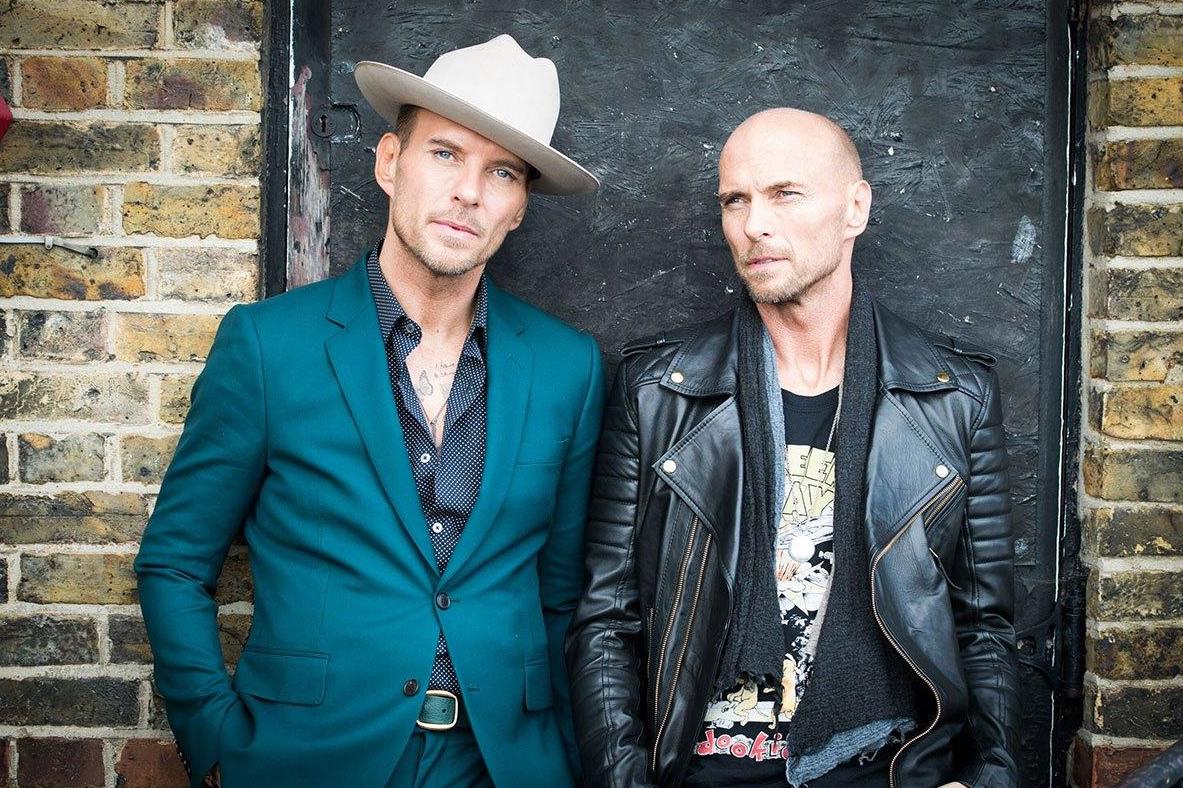Why the Bros documentary was the cult hit of British holiday television
In this week’s ‘State of the Arts’ column, Lucy Jones looks at the most-talked about documentary of the festive season, ‘Bros: After the Screaming Stops’


Your support helps us to tell the story
From reproductive rights to climate change to Big Tech, The Independent is on the ground when the story is developing. Whether it's investigating the financials of Elon Musk's pro-Trump PAC or producing our latest documentary, 'The A Word', which shines a light on the American women fighting for reproductive rights, we know how important it is to parse out the facts from the messaging.
At such a critical moment in US history, we need reporters on the ground. Your donation allows us to keep sending journalists to speak to both sides of the story.
The Independent is trusted by Americans across the entire political spectrum. And unlike many other quality news outlets, we choose not to lock Americans out of our reporting and analysis with paywalls. We believe quality journalism should be available to everyone, paid for by those who can afford it.
Your support makes all the difference.It was a Cain and Abel story rather than the birth of the baby Jesus that got everyone talking over the holidays. The surprise television hit wasn’t Poirot, or Watership Down, or Les Mis, but a music documentary about Bros, the mostly forgotten Eighties pop band, screened quietly on BBC4 late one night. Why did it strike such a chord? For a start, it’s hilarious, but the pathos of the film, particularly at Christmastime, was almost Shakespearean. When I sat down to watch it, to see what all the fuss was about, I didn’t expect to both laugh and cry.
The film sits in the same lane as Anvil, This is Spinal Tap and Popstar: Never Stop Never Stopping. Bros are ripe for the celebrity has-been genre. The brothers were world famous in their heyday, swiftly rocketing to the heights of stardom and wealth, before the screaming stopped and it came to an end. But, even as their stars have faded, they have retained the popstar pretensions and highfalutin’ opinions that are encouraged at the most hysterical levels of fame. Cue the most wonderful lines and meme-friendly quotes.
“I think the letters H-O-M-E are so important because they personify the word home, which means it’s the place that you come and feel safe,” says Matt Goss, with adamantine conviction and a total absence of self-consciousness.
His philosophies and theories keep on coming. “If you see a man sweeping the road that man’s a king to me, he’s one of my kings, [beat], because I’m thankful I don’t have to sweep the road.” CNN is the “thinking man’s reality show”. “I made a conscious decision because of Stevie Wonder to not be superstitious,” he tells us, deadpan. His delivery is absolutely perfect.
Perhaps the best moment is this. “You can’t even f***ing play conkers in England,” Matt muses at one point. “Can we start a petition on Bros please about how ridiculous it is that you can’t play conkers and if you do you got to wear goggles? You can’t play conkers in England, that is the biggest problem.” Luke pauses and replies, sanguine. “I can live with it.” It. Is. Glorious.
Of course, we are laughing at them. They are not in on the joke. And naturally that is directed by the editors’ sleight of hand. You see what the team are up to early on when they layer Luke talking about a “great actor and a dear friend” over a clip of someone who is clearly a terrible actor.
Soon, though, the film turns into something else. It’s not just a real version of David Brent: Life on the Road, and it definitely isn’t about the music (the only Bros song we really hear is “When Will I Be Famous?” and Blur’s David Rowntree wrote the score). In the first scene, a tense altercation that escalates into hostility, we’re privy to what is clearly a very complex, painful and emotionally charged sibling relationship. From Luke talking about going for 10-mile runs when he was a child (“not because I was mad about running, because I was mad about having my own time”) to Matt’s analysis of how the pair work (“He’s a rectangle. I am a rectangle. Together we are a square… That’s a fortress”), we are given a glimpse into the psychology of an extraordinary twin relationship.
The poignancy is ramped up as we are shown how damaged the brothers are and how vulnerable to the rapacious pressures of the music industry and mercurial favour of the media. “Bros has never been something that the country has been proud of,” says Luke. “I never had a thick enough skin that it doesn’t hurt me.” They were clearly too sensitive for fame, and they’re open about how harmful the grotesqueries of celebrity and the business was for their relationship.
The climax of the film is a scene in rehearsals for their comeback tour in which Matt doesn’t listen to Luke’s suggestion and he feels ignored. It plays out the dynamic that caused Luke to leave the band in 1992 after he walked into the recording studio to see that Matt had already programmed the drums. “I thought I was a waste of space, I thought I was useless; he was perceived as the gifted one, he was the special one,” he remembers. Matt’s version? “It’s been a never-ending apology for being Matt Goss.”
The frost finally melts at the end while they’re rehearsing a song about their late mother. By that point, when Matt repeatedly can’t get the words out, the mood has shifted. We are watching two boys still grieving the person who dried their tears and held their hands when they were scared. It is utterly moving, even if the lyrics won’t win any prizes.
If, like me, you were too young to be a Brosette, it doesn’t matter. The film is about the primal tensions of sibling rivalry and the imperfections of familial love. As much as Matt Goss’s quotes are amusing, he is surprisingly astute about his own situation. “Family can be challenging. You say stuff and hear stuff from your family that you’d never experience from a friend. For some reason family just abuse each other sometimes…” It is quite something to watch that behaviour up close. Perhaps for some people it was especially affecting as they spent time with family members, siblings, parents; those relationships which can be the most loving, as well as the most difficult and painful. “You’re the love of my life,” they tell each other, before going on stage. It is a compelling portrait of complex human interpersonal dynamics. Watch it if you haven’t already.
Join our commenting forum
Join thought-provoking conversations, follow other Independent readers and see their replies
Comments